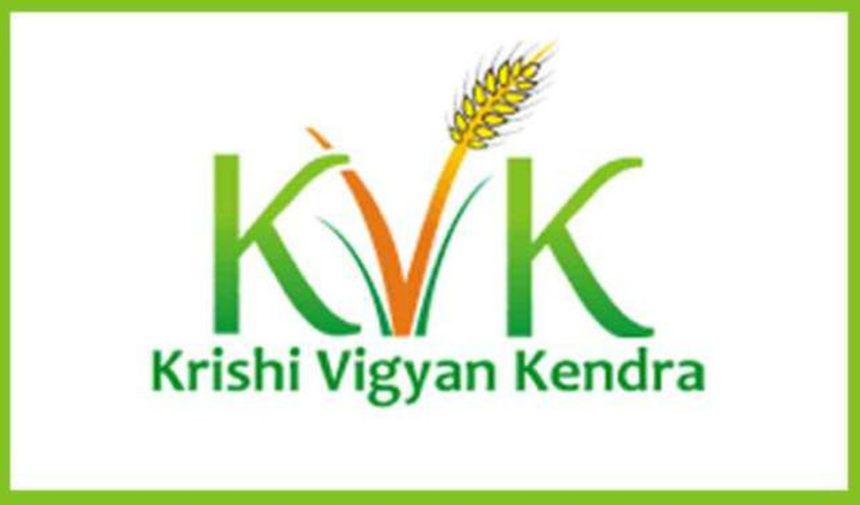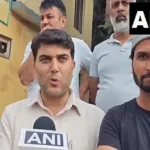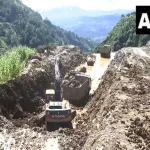On March 21 this year, KVKs completed 50 years of their establishment. Their voyage since the establishment of first KVK in the country in 1974 has driven agriculture in the country to new heights and bringing in the desired metamorphosis in this sector. The Indian Council of Agricultural Research (ICAR) organized special functions to commemorate the Golden Jubilee Celebration of the establishment of KVKs. On this Occasion Prof. Himanshu Pathak Director General ICAR and Secretary, Department of Agricultural Research and Extension (DARE) in his video message duly acknowledged the role of KVKs in transfer of technologies that resulted in increasing the food grains and horticultural production in the country. Dr. U. S. Gautham in his address highlighted how KVKs have been transformed from a mere training institute to a Single Window Agricultural Knowledge and Capacity Development Centre. Further, to commemorate the Golden Jubilee of KVKs, Secretary DARE and Director General (ICAR) also inaugurated the voyage of the ICAR-KVK Golden Jubilee Torch in Zone-V comprising Odisha, West Bengal and Andaman & Nicobar Islands from ICAR-KVK (A), Nadia. The KVK Golden Jubilee Torch relay symbolizes the spirit of KVK service to the farming community and simultaneously is being carried out in all 11 ATARIs’ as a part of the Golden Jubilee celebrations of KVKs.
All it started happening when the second education commission (1964-66) headed by Dr. D. S. Kothari recommended for the establishment of agricultural polytechnics to provide vocational education in agriculture to school drop outs and other rural youths. After threadbare deliberations by the representatives of Ministry of Education, Ministry of Agriculture and the Planning Commission (NITI Aayog); the Indian Council of Agricultural Research (ICAR) as a follow up to the recommendations emerging out of the deliberations constituted a committee in 1973 under the chairmanship of Captain Mohan Singh Mehta of Udaipur to work out a comprehensive plan for establishment of such institutes. Captain Mohan Singh Mehta thus came up with the institutional design in the form of Krishi Vigyan Kendra (KVK) and the first KVK was established in the year 1974 in Pondicherry (now Puducherry) under the administrative control of Tamilnadu Agricultural University (TNAU) Madras in Tamilnadu. Since the establishment of first KVK in 1974, these district level institutes are at the forefront of technology dissemination and a vital and integral part of the National Agricultural Research System (NARS) of the country. Their role and contribution in the agricultural sector of the country has been immense. The country at present has 731 KVKs of which 545 districts in the country have one KVK each and there are 93 districts sin the country which have two KVKs.
The Cluster Front Line Demonstration (CFLD) programme of the KVKs has been instrumental in augmenting pulse production in the country from an average of 17.70MT to 27.80 MT in 2022-23. The Crop Residues Management initiatives in 60 districts of four states have led to a remarkable 52% reduction in crop residue burning incidents contributing significantly to sustainability of the environment. The District Contingency Plans by the KVKs have provided a comprehensive framework for managing weather aberrations, offering vital support to both line departments and the farming community as well. The Integrated Farming System Models across 26 states /UTs including 31 bankable IFS for 22 states have helped increasing net income of farmers by 39% and have improved dietary diversity scores by 8.57%. The adoption of KVK recommended technologies have led to a notable increase of 42% in the productivity housing and health care of the farmers.
Each KVK trains around 100 persons annually of which 25% of trainees go for establishment of self employment ventures. 425 KVKs in the country are instrumental in promoting natural farming in the country by organizing awareness and sensitization programmes, demonstrations and capacity building programmes. Kisan Sarthi a digital platform has over 1.74 million registered farmers and has sent more than 5.8 crore advisories. KVKs have embraced drone technology to mechanize farming in the country. A study done by International Food Policy Research Institute (IFPRI) revealed that KVK interventions have resulted in an additional net farm income of rupees 5752/ha demonstrating their effectiveness in enhancing farmers’ livelihood.
With the passage of time KVKs mandate has changed from a single commodity approach to a broad based that now includes not only cereal crops but to other crops like horticultural, medicinal, oilseed, pulses and all other crops that are grown within the concerned district. Besides, KVKs are now training young person to become entrepreneurs, providing farm and weather advisory services, celebration of important days, and in devising technologies that help in drudgery reduction. There is also a lot of reporting work in the KVKs. So a meagre strength of six, finds itself overloaded and difficult to cope with the increasing responsibilities. Also a single KVK in districts having population in crores is not sufficient to cater to the needs of all.
A high powered committee on management of KVKs was set up under chairman ship of Dr. R. S. Paroda. It came up with a slew of recommendations regarding the Krishi Vigyan Kendra. It recommended the change of vision of KVKs to ‘Science and technology-led growth leading to enhanced productivity, profitability and sustainability of agriculture’, where as the Mission should be ‘Farmer-centric growth in agriculture and allied sectors through the application of appropriate technologies in specific agro-eco system perspective’. The new mandate of the KVKs as recommended by Paroda Committee was ‘Technology Assessment and Demonstration for its wider Application and Capacity Development’ (TADACD). It also called for an additional Krishi Vigyan Kendra in the district be established only based on specific criteria such as large rural population, bigger geographical area, higher net sown area, relative Executive Summary backwardness norms of the district, more Tribal/Scheduled Caste/Scheduled Tribe population, and those in mountainous (above 5000 feet above mean sea level) and difficult/border areas.
A third party evaluation of KVKs carried out by National Institute of Labour Economics Research and Development (NILERD), an autonomous institute under NITI Aayog in 2018 came out with findings which reveal that the KVKs all across the country are doing a tremendous job accomplishing and achieving many milestones. The evaluation found that KVKs are playing a proactive role in transferring new technology at field level with beneficial impacts and that these institutes have an edge over other service providers by virtue of having better technical expertise and demonstration abilities. The technologies demonstrated by KVKs were immediately adopted by 40 percent of the farmers and 25 percent adopted them by the next agricultural season. On an average a KVK covers 43 villages and 4300 farmers every year and 80% of villages covered are 10 kilometers away from KVK. The evaluation further said that 96 percent of the farming queries were attended by the KVKs and 42% technologies adopted by farmers resulted in higher productivity and 20 percent resulted in drudgery reduction. About 25% of the persons trained by KVKs started their own self employment ventures.
The Way Forward
In the present era when agriculture is facing challenges like Climate Change, non remunerativeness and farmers are leaving agriculture and youths not interested in it, KVKs have also to redefine their strategies and double their efforts for the welfare of the farming communities. Besides technology transfer and trainings/various skill development initiatives; KVKs have to assist the farmers in becoming successful entrepreneurs. At the grassroots level, the KVKs have to promote the concept of farming as an agribusiness entity through promotion of various startups. The much needed interventions to feed the growing population on a sustainable basis have to come from KVKs. KVKs have to become a comprehensive hub for providing one stop solution of the farming community related to supply of inputs, technical knowledge, weather based agro advisories, market related information, risk coverage and insurance, ensuring remunerative price of the produce by development of appropriate linkages, value addition and processing of the produce, mobilization of the farming community through collective associations like SHGs and Farmer Producer Organizations (FPOs).
Over the years, these institutions have emerged as grass root level institutions on whom the farming community relies without any second thought. They symbolize growth; a growth that is based on the pillars of inclusion, sustainability, profitability and empowerment.
(The author writes on agriculture and social issues, can be reached at: [email protected])








